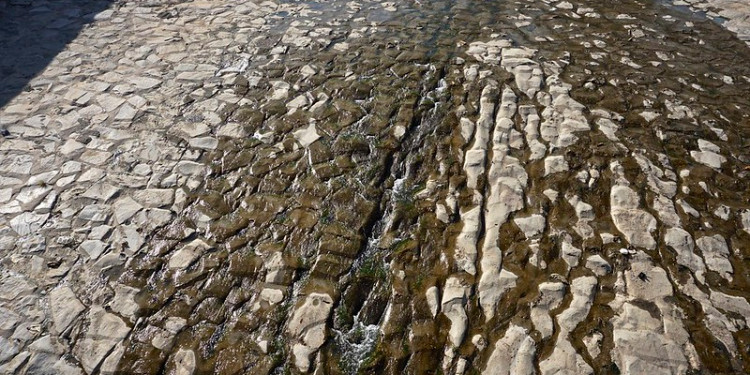
Chile plans to ration water to citizens as 12-year long drought leaves the country without enough water
April 15, 2022
On Monday, Chile announced possible plans to ration water in the capital of Santiago amidst a raging drought that is entering its 13th year.
The possible plan entails a four-tier alert system represented in four stages — “The Green Alert,” “Preventative Early Warning,” “Yellow stage” and “Red stage.
Governor of Santiago metropolitan area, Claudio Orrego mentioned in a press conference that this is necessary to plan for what may be to come.
“A city can’t live without water,” Orrego said. “And we’ve in an unprecedented situation in Santiago’s 491-year history where we have to prepare for there not to be enough water for everyone who lives here.”
The plan is expected to ration the drinking water of 1.7 million residents in Chile.
The 12-year drought
A record-breaking drought that has lasted over more than a decade, Chile is now entering its 13 year after adequate rain has failed to fall on Chilean soil — the country’s worst drought in 60 years.
Chile has a long history with droughts.
Prior to the 20th century, Chile has had many droughts that have lasted several years but nothing compared to the “Great Drought of 1968” and the current one.
The Great Drought of 1968 only lasted two years from 1968 to 1970 but had massive effects on the country’s agriculture and landscape.
The effects of the drought caused a huge loss of crops such as potatoes, rice, maize, beans, fruit trees and vineyards. Thousands of cattle and sheep also died from causing a decline of milk, meat and wool — the drought affecting all of the foods the country depends on.
The last drought prior to the 12-year drought occurred in 1997, lasting until 1998 — like other droughts the 1997 drought caused energy shortages and low rainfall.
Longer than any drought before, the 12-year drought has forced citizens of Chile to adapt to low water like never before.
In 2020 (Chile entering its 10th year), Fluence, a global team of engineers, scientists and professionals creating innovation and sustainable water technology, reported that 1.5 million Chileans were on a 50 L/d water ration from tanker trucks — farmers and citizens being forced to survive on tanker truck water.
Fluence also reported that Chile is expected to face extreme and the most severe water stress in the Western Hemisphere for the next four decades. Clearly, as the drought now enters its 13 year, droughts are here to stay in Chile and can be expected to increase as countries lack passing climate change regulations.
A complex plan, starting with water conservation and ending with rationing water
The plan has four stages.
The plan’s first stage is the “Green Alert” stage which emphasizes water conservation and prioritizes the use of groundwater.
The plan then goes into the “Preventive Early Warning” and “Yellow” stages which entails a reduction in water pressure. When the plan hits the “Red” stage, actual water rationing is applied.
When water cuts are applied, they will only take place in one sector of the city at a time and for a maximum of 24 hours.
The water deficits in the river, measured in liters per second, will determine whether cuts will take place every 12, six or four days — a different sector of the city facing a water cut each day.
The Chilean government estimates that the country’s water availability has dropped 10% to 37% over the last 30 years and could drop another 50% in the northern and central parts of Chile by 2060.
As the country’s record-breaking drought continues and an alarming estimate of water availability is expected to decrease by 50%, the Chilean government’s plan of rationing water seems to be the only solution to the drought which has starved plants, farmers and citizens of water.
Sign Up for Our Newsletter.
The longest drought in Chilean history is yet another clear sign that climate change is affecting countries around the world and is creating new, hazardous and frightening living conditions for residents. Perhaps if countries would come together to address the climate change issue, adopt better climate policies and actually implement them, countries like Chile would not have to ration water — a resource all humans should have equitable access to and the very basis of climate justice.
This article is republished from IMPAKTER under a Creative Commons license. Read the original article.



